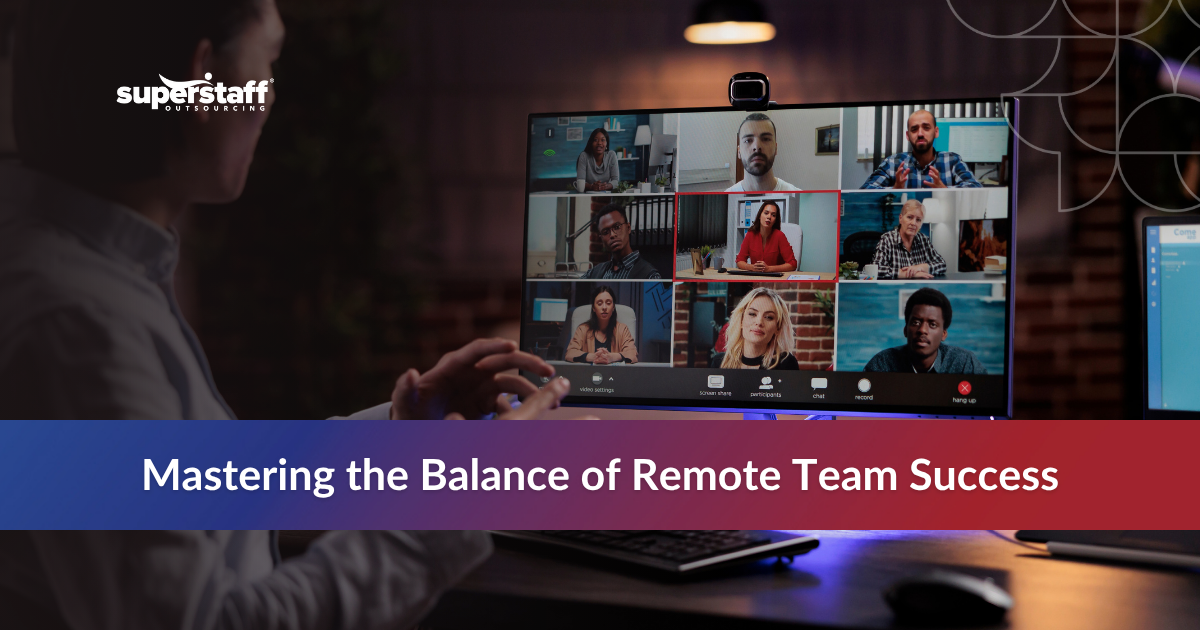
Legal work doesn’t stop at 5 p.m.—so why should support services? In today’s fast-paced legal environment, the pressure to meet tight deadlines, manage rising caseloads, and maintain high client service standards has never been greater. Yet many law firms and corporate legal departments are grappling with limited internal resources, escalating labor costs, and the growing demand for 24/7 responsiveness.
Enter the virtual legal assistant—a flexible, cost-effective solution that’s rapidly transforming how legal professionals manage routine and specialized support tasks.
Whether it’s handling document preparation, legal research, client intake, or scheduling, virtual legal assistants are proving indispensable for firms seeking efficiency without sacrificing quality. More importantly, they allow legal teams to stay agile, scaling up or down as workloads fluctuate and maintaining continuity in a hybrid or remote-first world.
In this blog, we explore how outsourcing virtual legal assistants is reshaping the future of legal support. From core functions and strategic benefits to security considerations and outsourcing best practices, we’ll help you understand why going virtual isn’t just a convenience—it’s a competitive advantage.
The Legal Industry Is Embracing Digital Transformation—And Support Roles Are Leading the Shift
The legal industry has traditionally been conservative when it comes to operational change, but that’s quickly evolving. The widespread adoption of remote legal work, virtual court hearings, and client video consultations has accelerated the industry’s digital transformation.
Driving this shift are a few key factors:
- Remote legal work and virtual client interactions have become the norm post-pandemic.
- Legal tech platforms such as e-filing systems, case management software, and AI-powered research tools are now essential.
- Cost pressures from clients and internal stakeholders are prompting firms to rethink how they allocate resources.
To stay competitive, firms are embracing legal process outsourcing, meaning they opt for a strategy that involves delegating administrative and operational legal functions to specialized service providers. In this context, outsourcing legal assistant tasks to virtual professionals allows law firms to maintain a leaner, more efficient structure.
Virtual legal assistants align perfectly with this new model, offering support that’s both high-quality and highly scalable. With cloud-based collaboration and secure remote access, legal support no longer has to be tied to a specific location or time zone.
What Do Virtual Legal Assistants Actually Do?
The term “virtual legal assistant” covers a wide range of tasks and responsibilities. These remote professionals are equipped to handle many of the same duties as their in-office counterparts, often with the added benefit of round-the-clock availability.
Typical tasks include:
- Document preparation and formatting
- Legal research and citation checking
- Case calendaring and deadline tracking
- Client intake and follow-up
- Transcription of audio recordings and court proceedings
They frequently use tools such as legal CRMs, e-filing platforms, time-tracking software, and collaboration apps like Microsoft Teams or Slack to stay connected with in-house teams.
What sets remote legal assistants apart is the structure of their engagement. They may support multiple clients across jurisdictions, specialize in niche practice areas, or focus on project-based work like trial preparation or regulatory compliance audits.
High-demand specialties include:
- Litigation support: drafting discovery responses, managing trial binders
- IP filings: preparing trademark applications, managing renewals
- Compliance tracking: monitoring deadlines, updating internal audit logs
This functional diversity allows law firms to tailor support to their unique needs—without the costs associated with hiring full-time in-house staff.
Why More Legal Teams Are Outsourcing Virtual Assistants Through LPOs
One of the most compelling reasons law firms and legal departments turn to outsourcing is cost-efficiency. Hiring and training in-house legal staff is expensive, especially in competitive urban markets. Outsourcing allows access to qualified legal professionals without the overhead of physical office space, equipment, and benefits.
Key benefits of working with a Legal Process Outsourcing (LPO) partner include:
- Lower operational costs and simplified HR management
- Global talent access, including legal professionals trained in U.S. legal systems
- 24/7 availability, especially valuable in litigation and emergency filings
BPOs make it easier to scale up quickly for:
- Case surges due to large litigation matters or class actions
- Project-based work, like M&A due diligence or legal audits
This flexibility is a game-changer in today’s fast-paced legal environment, where demands shift quickly and unpredictably. With the right virtual support, legal teams can respond with speed and confidence.

Security and Compliance in Outsourced Legal Support
Confidentiality is the cornerstone of the legal profession. When outsourcing legal assistant tasks to virtual professionals, firms must be confident that client data and sensitive case materials are handled with the highest levels of security.
Trusted BPO providers address this through:
- Certifications like ISO 27001 for information security management
- Strict access controls, VPNs, and encrypted communication channels
- Non-disclosure agreements (NDAs) for all staff
In addition to these technical safeguards, BPOs implement robust remote work protocols to ensure:
- Only authorized personnel access client data
- Sensitive materials are stored and transferred securely
- Compliance with jurisdiction-specific legal requirements is maintained
Rather than being a risk, outsourcing can actually enhance operational control. Centralized service-level agreements (SLAs), performance dashboards, and audit logs provide transparency and accountability—often exceeding what firms can track internally.
Common Misconceptions About Outsourcing Legal Support
Despite the clear benefits, some firms hesitate to outsource due to outdated perceptions. Let’s clear the air on a few common myths:
Myth 1: Outsourced = low quality
In reality, many virtual legal assistants are certified paralegals or legal professionals with extensive experience. BPOs invest heavily in training and ongoing development to meet international legal standards.
Myth 2: Virtual means disconnected
Thanks to modern collaboration tools, virtual assistants can be just as integrated as in-house staff. Daily huddles, shared task boards, and direct messaging ensure smooth communication.
Myth 3: Legal work should stay in-house
While sensitive decision-making should remain internal, routine legal support functions are ideal for outsourcing—freeing up lawyers to focus on strategy, advocacy, and client relationships.
Once these myths are addressed, legal teams often find that virtual legal assistants not only meet expectations—they exceed them.
What to Look for in a Virtual Legal Assistant Outsourcing Partner
Not all outsourcing providers are equal. Choosing the right BPO partner is essential to ensure quality, security, and cultural alignment.
Key criteria include:
- Experience serving legal clients, especially those in your jurisdiction
- Structured onboarding and SLAs that define turnaround times and responsibilities
- Transparent pricing models with no hidden fees
Look for BPOs that offer:
- Scalability to match your firm’s growth
- Data protection policies aligned with your industry’s compliance standards
- Multidisciplinary teams that can also handle legal billing, marketing support, or case research
Ultimately, the goal is to make your virtual assistant feel like a seamless extension of your in-house team. That starts with the right partnership.
Looking to Hire an Exceptional Virtual Legal Assistant? Partner With an Experienced LPO Firm Like SuperStaff
The shift to virtual legal assistants isn’t just a trend—it’s the next chapter in legal support. As the legal profession continues to evolve, embracing remote, flexible, and tech-enabled support services is becoming a strategic imperative.
From reducing costs and boosting efficiency to enhancing security and enabling around-the-clock service, outsourcing legal assistant tasks to virtual professionals empowers law firms to adapt and thrive.
Ready to modernize your legal operations? Discover how SuperStaff’s virtual legal support solutions can help you scale efficiently and securely, without compromising quality or compliance.






